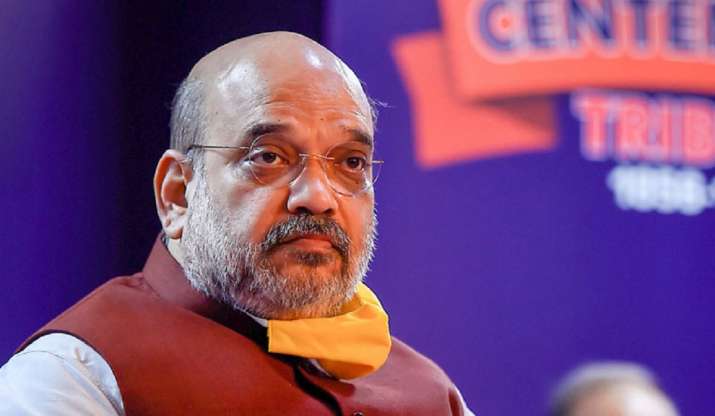Dadra and Nagar Haveli and Daman and Diu [India]: Union Home Minister Amit Shah on Saturday (June 11) chaired a meeting of the Western Zonal Council, comprising the states of Gujarat, Maharashtra, Goa and Union Territory of Dadra and Nagar Haveli and Daman and Diu.
The meeting is being held after a gap of two years due to the coronavirus pandemic.
The Home Minister will be apprised about the details related to boundary issues between the concerned states, security-related matters, law and order, and infrastructure like road, transport, industries, water and power, said a top government official.
In the over two hours long meeting, officials concerned with all the states participating in the meeting will show presentations to the Home Minister, and the outcome of the meeting will be implemented for better coordination and work, said the official.
The Zonal Councils provide an excellent forum where irritants between the Centre and States and amongst the States are resolved through free and frank discussions and consultations.
Being advisory bodies, there is full scope for a free and frank exchange of views in their meetings. Though there are a large number of other fora like the National Development Council, Inter-State Council, Governor’s and Chief Minister’s Conferences and other periodical high-level conferences held under the auspices of the Union Government, the Zonal Councils are different, both in content and character.
They are regional fora of cooperative endeavour for States linked with each other economically, politically and culturally. Being compact high-level bodies, specially meant for looking after the interests of respective Zones, they can focus on specific issues taking into account regional factors while keeping the national perspective in view.
The main objectives of setting up Zonal Councils are as bringing out national integration; arrest the growth of acute State consciousness, regionalism, linguism and particularistic tendencies; enable the Centre and the States to co-operate and exchange ideas and experiences, and establish a climate of co-operation amongst the States for successful and speedy execution of development projects.
The idea of the creation of Zonal Councils was mooted by the first Prime Minister of India, Pandit Jawahar Lal Nehru, in 1956 when during the course of the debate on the report of the States Re-organisation Commission, he suggested that the States proposed to be reorganised may be grouped into four or five zones having an Advisory Council “to develop the habit of cooperative working” among these States.
This suggestion was made by the first Prime Minister of Independent India, Jawaharlal Nehru, at a time when linguistic hostilities and bitterness as a result of the re-organisation of the States on the linguistic patterns were threatening the very fabric of our nation. As an antidote to this situation, it was suggested that a high-level advisory forum should be set up to minimise the impact of these hostilities and to create a healthy inter-State and Centre-State environment with a view to solving inter-State problems and fostering balanced socio-economic development of the respective zones.
In the light of the vision of former PM Jawaharlal Nehru, five Zonal Councils were set up vide Part-III of the States Re-organisation Act, 1956.
Besides Western Zonal Council, there is the Northern Zonal Council, Central Zonal Council, Eastern Zonal Council, and Southern Zonal Council.
The Northern Zonal Council, comprising the States of Haryana, Himachal Pradesh, Jammu & Kashmir, Punjab, Rajasthan, National Capital Territory of Delhi and Union Territory of Chandigarh;
The Central Zonal Council, comprising the States of Chhattisgarh, Uttarakhand, Uttar Pradesh and Madhya Pradesh;
The Eastern Zonal Council, comprising the States of Bihar, Jharkhand, Orissa, Sikkim and West Bengal; and the Southern Zonal Council, comprising the States of Andhra Pradesh, Karnataka, Kerala, Tamil Nadu and the Union Territory of Puducherry. (ANI)




















Comments